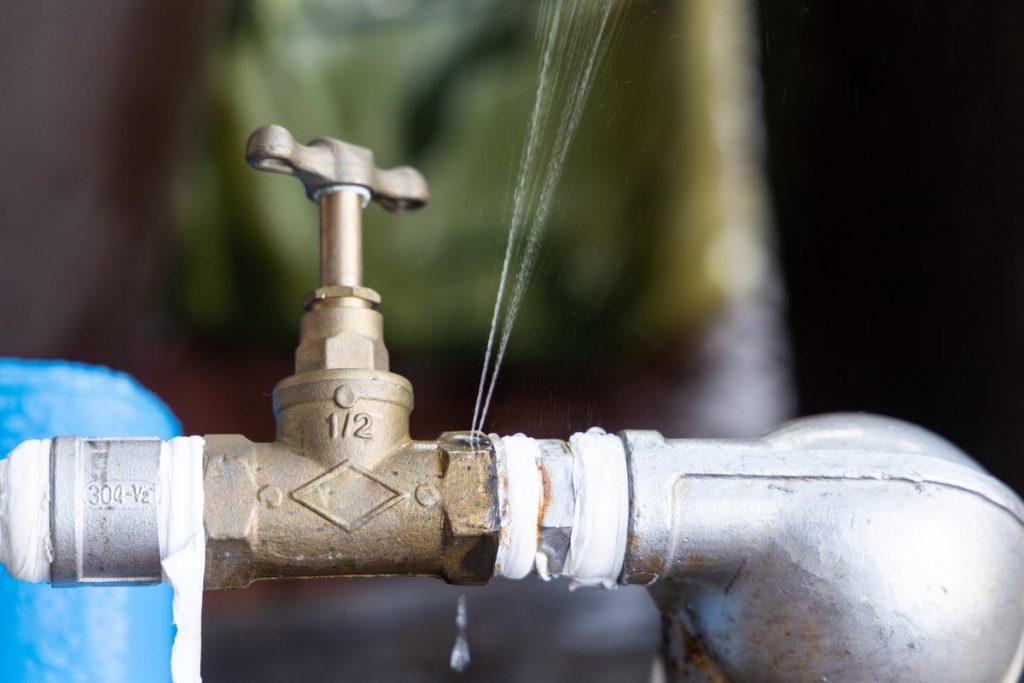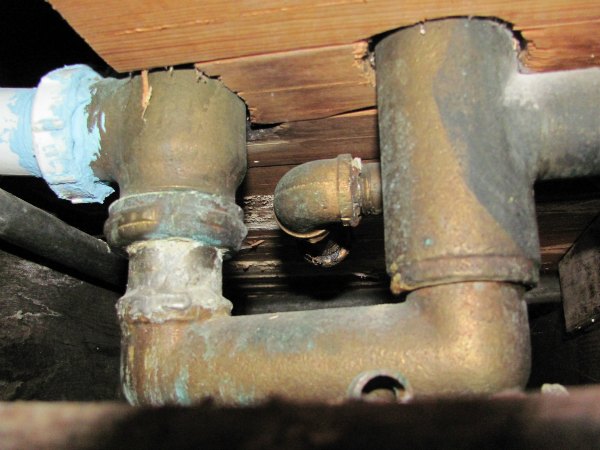Useful Techniques to Address Plumbing Issues in Older Homes
Useful Techniques to Address Plumbing Issues in Older Homes
Blog Article
The writer is making a number of great pointers relating to Common Plumbing Problems in Older Homes as a whole in this post underneath.

Older homes typically include charm, personality, and history, but they can additionally bring a host of pipes issues. Whether you're managing aging pipelines, low tide pressure, or leakages, understanding how to attend to these common troubles is important to maintaining a secure and functional home. In this guide, we'll check out the typical pipes challenges encountered by older homes and offer sensible options to keep your pipes in top shape.
Understanding Typical Pipes Issues
Aging Pipelines
Among the most typical concerns in older homes is aging pipes. Relying on the age in which your home was constructed, the pipes may be made from products that have weakened gradually, such as galvanized steel, cast iron, and even lead. These products can wear away, become fragile, or create leakages, leading to water damage and potential carcinogen.
Water Top Quality Screening
Older pipes can impact the high quality of your water. Conduct a water top quality test to check for pollutants such as lead, corrosion, or various other contaminations that may be introduced by aging pipelines.
Solutions for Common Plumbing Issues
Replacing Aging Pipes
If your home has old, degrading pipelines, take into consideration replacing them with contemporary products like copper or PEX. This can be a substantial financial investment, yet it will certainly protect against future issues and improve the safety and dependability of your plumbing system.
Taking Care Of Low Water Pressure
To fix low water stress, begin by cleansing or replacing old fixtures and eliminating mineral build-up in the pipelines. If the problem continues, it might be essential to replace sections of corroded pipes.
Repairing and Replacing Leaking Pipelines
For tiny leakages, you can use pipe clamps or epoxy putty as a temporary fix. However, it's best to change dripping pipelines totally to stay clear of more damages.
Updating Components
Updating old components to contemporary, water-efficient designs can enhance your home's plumbing performance and decrease water usage. Search for fixtures with the WaterSense label for the best efficiency.
Dealing with Pipeline Corrosion
If your pipes are rusted, replacing them with corrosion-resistant materials like copper, PVC, or PEX is the most effective remedy. Normal evaluations and water high quality maintenance can help protect against additionally corrosion.
Low Tide Stress
If you're experiencing low tide pressure, it could be as a result of mineral deposits, corrosion inside the pipelines, or old fixtures that are no longer operating effectively. This can be a significant hassle, specifically in areas like showers and sinks.
Dripping Pipes
Leakages are another regular concern in older homes, typically caused by rusty or worn-out pipes. Also little leaks can result in significant water damage, mold and mildew development, and boosted water expenses otherwise dealt with without delay.
Obsolete Components
Out-of-date plumbing components such as faucets, commodes, and showerheads not only look old yet may also be much less effective, susceptible to leaks, or inappropriate with contemporary pipes criteria.
Pipe Corrosion
Rust is a common trouble in older pipes, especially those made from galvanized steel or cast iron. Rusty pipes can limit water flow, create discoloration, and at some point result in leakages or pipe ruptureds.
Examining the Condition of Your Pipes
Checking Visible Pipelines
Start by checking any visible pipelines in your house, such as those in cellars, crawl spaces, or under sinks. Try to find indicators of rust, leakages, or rust, which can suggest underlying issues.
Checking for Leaks
Check for leakages by evaluating areas around taps, toilets, and under sinks. You can additionally monitor your water meter prior to and after a period of no water utilize to identify hidden leaks.
When to Call an Expert
While some plumbing concerns can be managed with DIY options, there are times when it's best to employ a professional. If you're dealing with significant leaks, substantial deterioration, or are uncertain regarding the problem of your pipelines, a certified plumber can provide expert evaluation and repair service.
Preventive Upkeep Tips
Normal Inspections
Frequently inspect your pipes system for indicators of wear and tear. Catching issues early can avoid expensive repair services down the line.
Water Pressure Policy
Guarantee your water stress is within the recommended variety to prevent emphasizing your pipelines and fixtures. A plumbing can set up a stress regulatory authority if needed.
Water High Quality Maintenance
Mount water filters or conditioners if your water quality is poor. This can safeguard your pipelines and fixtures from damage brought on by difficult water or contaminants.
Proactive Pipe Replacement
If your home has very old pipes, consider proactive substitute before significant problems develop. This can save you from emergency repair work and water damage.
Verdict
Managing plumbing problems in older homes calls for a mix of caution, preventive maintenance, and timely upgrades. By understanding the common difficulties and knowing when to seek professional assistance, you can ensure your pipes system continues to be practical and trustworthy for several years to come.
Common Plumbing Issues in Older Homes
Pipe corrosion
Pipe corrosion is a common plumbing issue in older homes. Several factors can cause pipes to corrode:
Water: Ironically, water is the number one cause of pipe corrosion. When water seeps into cracks in pipes, it can cause the metal to rust and break down, leading to leaks or even burst pipes.
Oxygen: Oxygen is another significant culprit in pipe corrosion. When oxygen interacts with water, it can cause the metal to oxidize and weaken.
Chemicals: Chemicals such as chlorine and fluoride can also contribute to pipe corrosion. These chemicals can react with the metal in pipes, causing them to break down over time.
Leaky pipes
Pipes that leak is one of the most common plumbing issues plaguing residents of older houses. While a small leak may not be a problem initially, it can lead to significant problems if left unaddressed. In addition, water damage can be very costly to repair and may cause damage to electric fixtures, promote mold growth and cause many other issues.
Worn-out fixtures
Older homes often have worn-out fixtures which may need replacement. Over time, the finishes on fixtures can wear down, exposing the underlying metal to corrosion. This can cause fixtures to leak or even break completely. It s best to have a professional plumbing contractor regularly inspect the fixtures in older homes and replaces them if necessary.
Faulty water heaters
A leaky water heater can cause severe damage to the home as it can be both a flood and fire hazard. Call a plumber immediately if it appears that the water heater might be leaking.
If the heater isn t working correctly, it could be because the pilot has gone out. The pilot light going out may indicate gas supply issues or leaks. It is also worth checking the thermostat to see if it needs to be adjusted.
If the water heater is making strange noises, it could be due to sediment buildup in the tank. Sediment can interfere with the heating elements and cause them to overheat. Overheating can damage the tank and shorten the lifespan of the water heater.
https://www.norfleetfamilyplumbing.com/blog/common-plumbing-issues-in-older-homes

Hopefully you enjoyed our section about Main Plumbing Issues Found in Old Houses. Thanks a lot for spending some time to read through our blog. Loved our piece of writing? Please quickly share it. Let somebody else check it out. I am grateful for your time. Don't forget to stop by our site back soon.
Request An Estimate Report this page